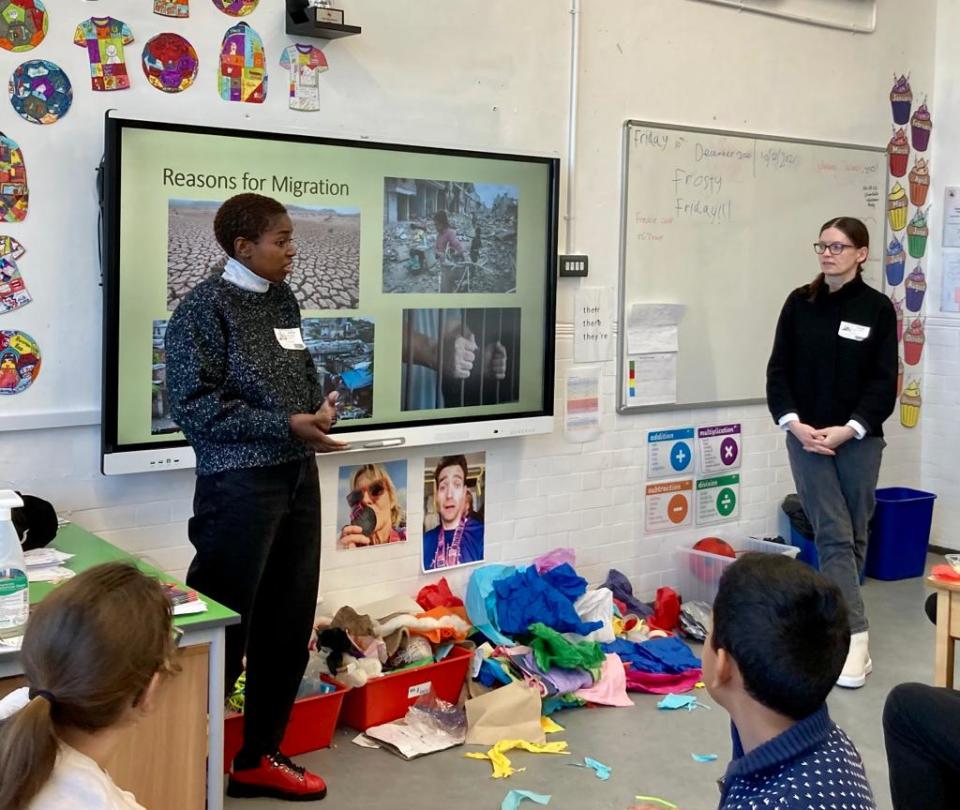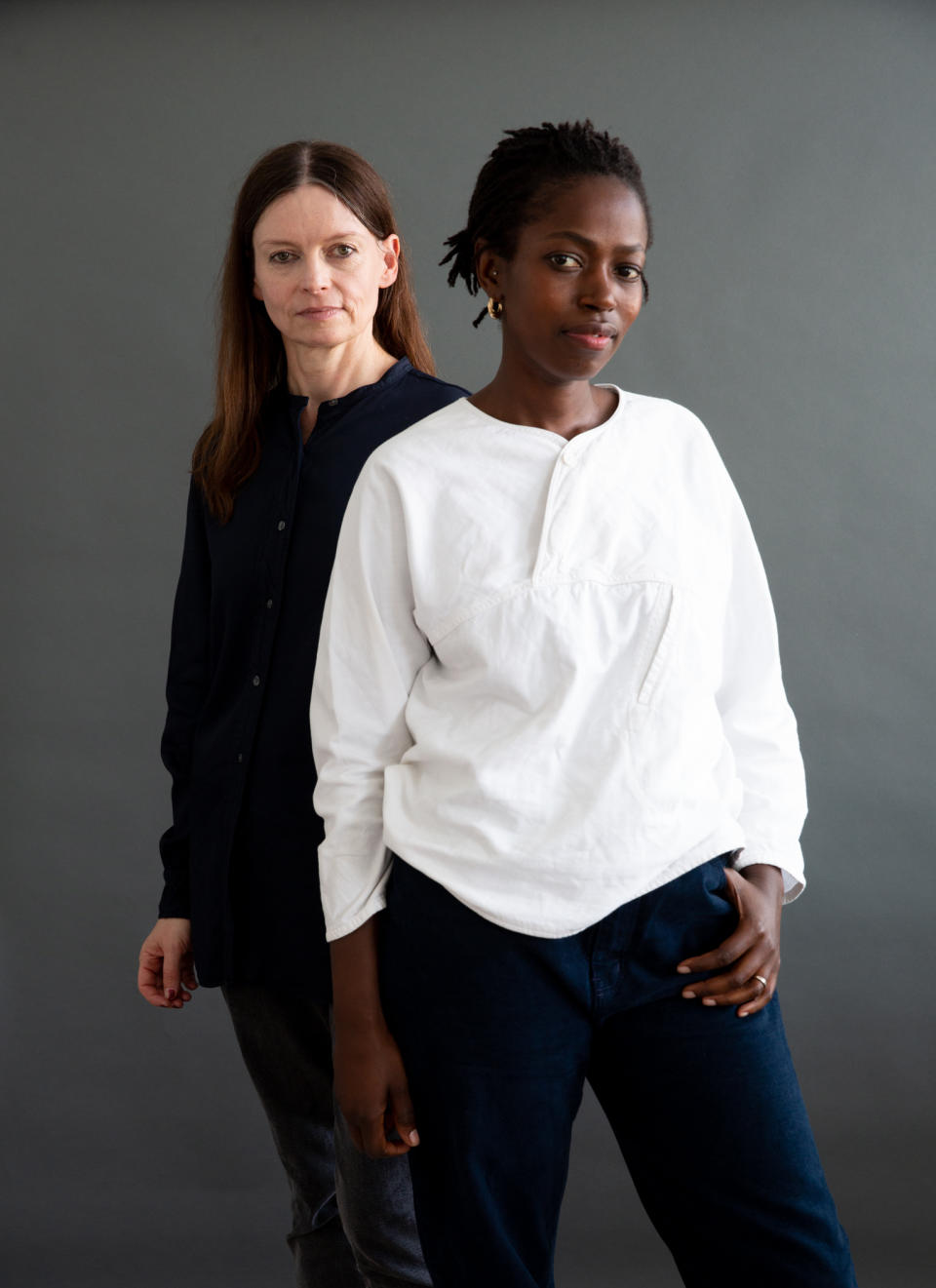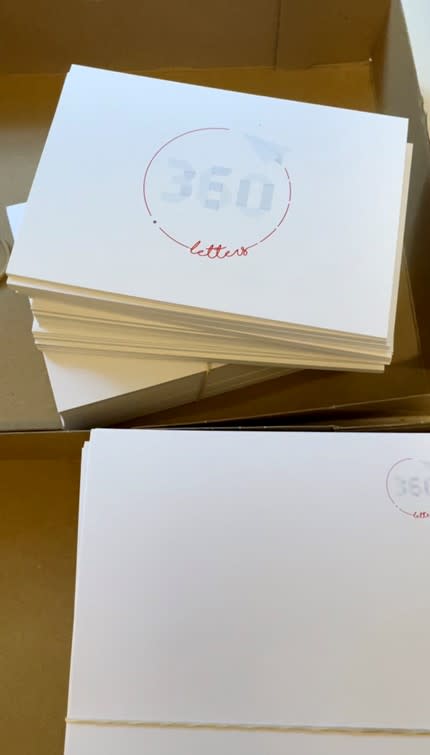Pair hope to expand letter-writing scheme between children and young migrants
The founders of a grassroots organisation hope to launch a nationwide letter-writing scheme between migrant and British children to help them “learn about each other on a human level”.
Kids Against Racism, an organisation based in Greenwich, south-east London, first set up a pilot project called 360 Letters during lockdown, which was helped by a grant of around £9,000 from the National Lottery Community Fund.
Children who had recently arrived in the UK from countries including the Caribbean, Africa and Russia exchanged 12 letters between May and July 2022 with primary school students who were either born in the UK or had lived here for a substantial period of time.

Co-founders Massy Spencer and Helen Valentine said feedback for the pilot was “incredible” and they are now in the process of trying to establish the organisation as a charity so they can apply for funding to launch the scheme nationwide.
They hope it will create a “ripple effect” to encourage open conversations between young people about migration, particularly ahead of the General Election in July.
Ms Valentine told the PA news agency: “The subject of migration is riddled with misinformation now.
“There is a lot of debate about migration but it comes from a stance that dehumanises people and this is presented to us as facts.
“What 360 Letters does is radical because it… speaks to our shared humanity, so trying to go ahead with a nationwide version of this project seems really vital now and really radical in a way that might have not been the case when we first devised it.”
Ms Spencer said they had received positive feedback from schools and parents of children involved in the pilot.

“We had an exhibit at the end of the scheme where those involved took part in interviews, and the feedback was incredible,” Ms Spencer said.
“There was one dad who was a migrant and was quite reluctant at the beginning to get involved as the family were fairly new to the country and there were language and cultural barriers.
“At the end, he told us he saw the benefit and he was really happy that his children took part.”
Ms Valentine said the impact on UK-resident children had been positive too.
“A lot of children went into it thinking, ‘I’m going to help welcome a migrant child in some way or make them not feel so lonely’, but the resident children were also lonely and realised the person they were speaking to were just like them.
“That child played Roblox, just like them, and a lot of the conversations they had were about the everyday things that they were doing.”

Despite the voting age being 18, Ms Valentine highlighted the importance of encouraging younger people to have a voice.
“Children aren’t born cynical or weary, and we had massive waiting lists from people who wanted to take part in the pilot and people messaging us asking about when we will have the scheme again,” she said.
“I think children are light-years ahead of where a lot of adults are. They may be too young to vote this time, but they can keep using their voice and making a difference.”
Ms Spencer reiterated the importance of “early intervention” to educate children about topical issues.
“Adults are having conversations about migrants and immigration, but actually they’re not really the ones who are necessarily going to be affected by it in the future,” she said.
“There is miseducation about migration – we want to facilitate conversations between migrant and UK resident children so that they can learn about each other on a human level.”
More information about Kids Against Racism can be found at: kidsagainstracism.org.uk/about/.


